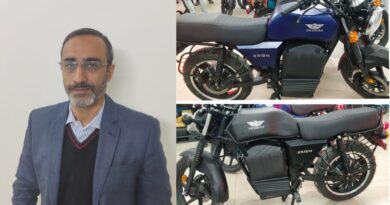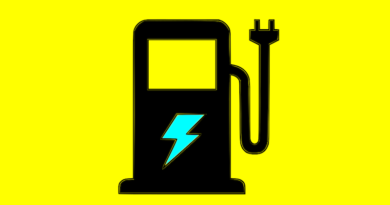Solid State Batteries – Where we are at?
Solid-state battery maker QuantumScape was in news recently for sharing the performance data of its solid-state batteries and its bull run on the New York stock exchange. Solid state Lithium metal batteries have the potential to provide much safer and energy dense batteries than today’s Li-ion batteries. This article talks about the basics of solid-state batteries, companies leading the research and where they currently stand.
How do solid-state batteries differ from traditional Li-ion batteries?
In Li-ion batteries, Anode is made of Graphite and sometimes Silicon. Lithium metal anode can achieve dramatically higher energy densities than these anode materials. However, Lithium metal is not suited for use with conventional liquid electrolytes (main reason is dendrite formation) and can not be used without a solid state separator.
Traditional Li-ion batteries have a liquid electrolyte to help ions move between the two electrodes. A solid state battery replaces this liquid electrolyte and the separator between cathode and anode with a solid ion-conducting material. This helps create a much safer cell by replacing the flammable liquid electrolyte, and also allows for the use of lithium metal at anode.
Let’s have look at the front runners of solid state technology.
QuantumScape
Update on Jan 12, 2021 – Stock Market analysis company Seeking Alpha published an article calling in question the claims made by QuantumScape. Following which, a lawsuit was filed against the company, says a global newswire report.
California-based QuantumScape launched its IPO on New York Stock Exchange on Nov 27, 2020 at a valuation of $3.3B, after 10 years of R&D in stealth mode. The company is also backed by Volkswagen, Bill Gates and Khosla Ventures among others. The Volkswagen Group and QuantumScape formed a JV in 2018 to enable industrial-level production of solid-state batteries, and the automaker has committed $300 million of funding to the battery company. According to a Volkswagen press release, they have tested QuantumScape early-stage solid-state battery sample cells in Germany running at automotive rates of power.
Founders – Jagdeep Singh, Professor Fritz Prinz and Dr. Tim Holme

QuantumScape solid state battery offers Anode free manufacturing, i.e. an anode free cell design. Lithium is plated at anode during charge cycles. During discharge, nearly all of that lithium then returns to the cathode. Elimination of anode material and anode manufacturing helps reduce the manufacturing cost by 17% as compared to Li-ion batteries. QuantamScape also expects the batteries to perform well across the automotive temperature range from sub-zero temperatures (-25 C) to 60 degrees C.
Key innovation of the company is the development of a ceramic solid-state separator and electrolyte. QuantumScape claims to have significant technology advantage that is protected by nearly 200 Patents and Patent applications and about 100 Trade secrets.

QuantumScape also released the following performance data based on tests run on its single-layer pouch cell prototypes:
– Charge rate – 4C fast charge. Enables 0-80% fast charge in less than 15 mins.
– Battery life lasts over more than 800 cycles for a long range BEV.
– More than 80% improvement in energy density as compared to today’s Li-ion batteries
Product road-map for QuantumScape
As next steps, the company will be working on increasing the separator yield and manufacturing multi-layer cells. According to the product road map, OEM sample testing will go on till mid 2023, with start of production planned into 2024 from a 1GWh factory.
The company is planning to build a pre-pilot line facility in San Jose, California, QS-0, which will be capable of building over 100,000 engineering cell samples per year.
Update – 19Feb, 2021
QS announced for the first time that they have made 4-layer multilayer cells in the 30x30mm form factor, and have now seen close to 800 cycles at 30°C with over 90% capacity retention at both C/3 and 1C rates, which are substantially similar to the single-layer cells they reported in December 2021. While there is much work still to be done, these results demonstrate that QS can successfully stack our single-layer unit cells without adversely impacting the cycle life and capacity retention performance of the cells.
Also Read: Indian researchers develop solid state battery technology for EV application
Solid Power
Colorado, USA based Solid Power was founded in 2011. Solid Power’s solid state batteries use a solid sulphide based electrolyte material and claim to deliver more than 50% energy density of today’s Li-ion batteries. The company has tie-ups and attracted investments from automotive majors – Ford, Hyundai, BMW. According to Crunchbase, Solid Power has raised a total of $23.5M in funding.
Founder – Doug Campbell

Solid Power’s batteries are manufactured in a manner that is highly compatible with industry-standard roll-to-roll manufacturing used in current lithium-ion production process. The company shipped 250 prototype solid state lithium metal cells to its strategic partners in 2020. These first generation 10-layer 2Ah cells were manufactured using Solid Power’s MWh-scale pilot line, designed to mimic existing Li-ion production lines by using identical mixing, coating, calender densification and stacking processes and equipment. In Q3 2020, both pilot line cells and solid electrolytes were successfully validated by multiple OEM partners & Tier 1 cell suppliers, according to a company statement.

In Dec 2020, Solid Power unveiled a bigger 20Ah, 22 layer Li-metal cell, with an energy density of 330 Wh/kg which is higher than any of today’s lithium-ion batteries. The cells are currently being produced to validate large-format cell production processes.
Solid Power anticipates entering the formal automotive qualification process in early 2022 with even larger capacity all solid-state battery cells.
Other players in fray
Ionic Materials, headquartered at Woburn, MA is a technology company focused on developing materials for batteries. In a partnership with lithium-ion battery maker A123 Systems, the duo announced in 2019 that they created an exceptionally safe and high energy density solid state battery using Ionic’s conductive polymer. The company claimed its breakthrough polymer to be the first solid electrolyte to fully function at room temperature and be compatible with lithium and alkaline-based batteries, also adding that this innovation enables the manufacture of a full scale all solid-state batteries using today’s lithium-ion manufacturing equipment.
The prototype cells based on Ionic’s solid polymer electrolyte with graphite anodes and metal oxide cathodes were planned to be manufactured at a repurposed A123 planet in Michigan. However, there have been no recent updates from the company on progress made.
According to Crunchbase, Ionic Materials has raised a total of $65M in funding. Investors include Mitsubishi Motors, Nissan, Renault, Hyundai.
Recently, Toyota announced to unveil a running prototype of a Battery Electric Vehicle with a solid state battery in 2021. According to a Nikkei Asia report, the vehicle will come with a range of 500 km and will be recharged from zero to full in 10 minutes. Toyota has over 1,000 patents involving solid-state batteries.
Keep watching this space for updates.
Let us know in comments if there are other solid state battery tech companies we should cover.
Cover image source: QuantumScape
Suggested Reads:
https://cleantechnica.com/2020/12/11/solid-state-batteries-theyre-everywhere-theyre-everywhere/
Subscribe today for free and stay on top of latest developments in EV domain.







like to know more about solid state battery and interested in this field
This is a good resource – https://lnkd.in/ehxd-F4
An excellent insights into the highly promising SSB technology,
As I am highly interested into this area, then I would be highly appreciated to get this article downloaded, either in PDF or Word format.
My email address: boban.rajkovic@gmail.com
Thank you,
Boban Rajkovic